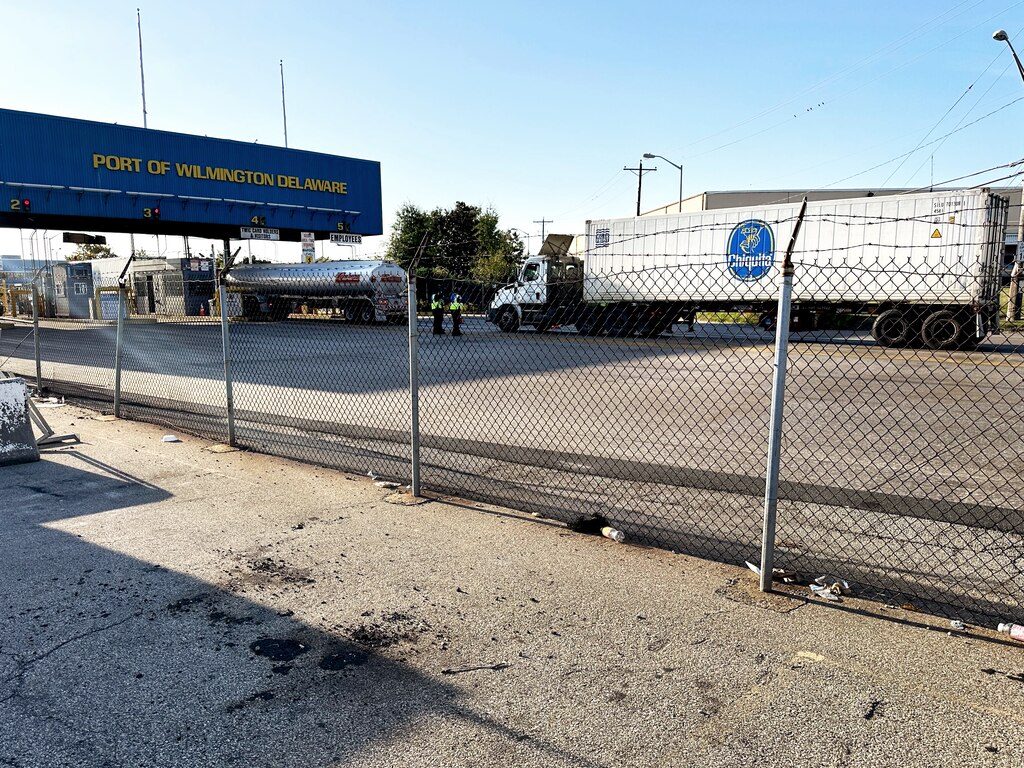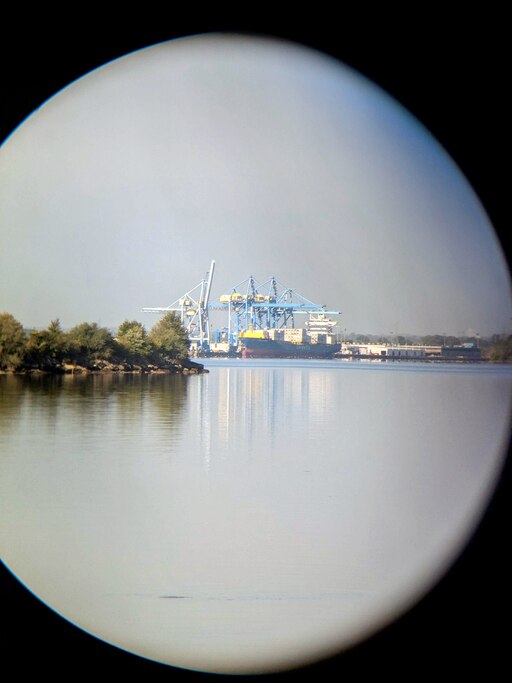Stop panic-buying bananas.
For days, local and national outlets have been warning that a labor strike at ports from Texas to Maine could cripple the country’s supply chain — and lead to widespread banana shortages.
While some companies have been stockpiling consumer goods or routing them through West Coast ports, that’s not possible with bananas. They need to be picked, shipped and sold within a couple of weeks.
The president of the International Longshoremen’s Association, or ILA, all but promised that many Americans would soon be elbowing each other to grab that last mushy banana at their local grocery store.
The Baltimore Banner thanks its sponsors. Become one.
“Cars won’t come in. Food won’t come in. Clothing won’t come in,” said Harold Daggett, speaking at a picket line this week.
At midnight Monday, the ILA’s six-year contract expired and some 45,000 members walked off the job, including roughly 2,000 dockworkers in Baltimore. They are possibly forgoing weeks or months of pay to secure a contract that guarantees higher wages and a halt to port automation.
But some longshoremen will continue making bread. Banana bread, that is.
This week, a massive container ship called the Chiquita Voyager arrived in Port Wilmington in Delaware, and members of the ILA unloaded it. That’s apparently because banana companies operate outside the trade group of shipping companies being targeted by striking dockworkers.
“What do we want them to do? Go to a nonunion facility?” said William Ashe, president of Local 1694, in a phone call Wednesday night. “We’re not working anything but bananas.”
The Baltimore Banner thanks its sponsors. Become one.
And it’s not just Wilmington.
Ashe said longshoremen at four other ports — a port in Texas; the Port of Gulfport in Mississippi; and the SeaPort Manatee and Port Everglades in Florida — are also working banana ships.
“It’s all bananas,” Ashe said. “Nothing else.”
The banana bonanza at Port Wilmington is happening even as the American Farm Bureau Federation warned that the ILA strike would imperil 75% of the nation’s banana supply.
The news that Port Wilmington continues to process bananas is a huge boon for banana lovers, said Jason Miller, a professor of supply chain management at Michigan State University. He pointed to federal data that shows Port Wilmington handles 27% of all bananas imported into the United States. That’s twice as much as any other port in America.
The Baltimore Banner thanks its sponsors. Become one.
Spotlight Delaware first reported that unionized dockworkers might continue to unload produce at Port Wilmington. A Baltimore Banner visit to the port early Thursday confirmed it.
About a dozen ILA members on strike sat outside the port’s entrance, while trucks with logos for Chiquita Brands and Dole Food Co. drove through the gate. Some of the truck drivers even honked in support of the striking workers.
“Uh oh, lemme keep my mouth shut,” said a longshoreman when a reporter approached.
But then he kept talking.

The dockworker, who declined to provide his name, said he’d worked at the port for about 40 years. Much of his work involved unloading produce, like bananas, bound for grocery stores across the Northeast and mid-Atlantic.
The Baltimore Banner thanks its sponsors. Become one.
“They’re gonna end up in Baltimore,” he said of the bananas. “I can tell you that.”
Then another member of the ILA pulled him aside, whispered something in his ear, and the longshoreman declined to comment further.
The ILA has been advising members against speaking to the media. A spokesman for the ILA did not respond to a request for comment.
Many industries rely on major ocean carriers such as A.P. Moller-Maersk or Mediterranean Shipping Co. to move their goods across the world. Those companies are the primary employers of unionized longshoremen at ports on the East Coast and Gulf Coast. Their contract is negotiated with a trade group called the United States Maritime Alliance, or USMX.
But the banana industry is separate from USMX, and companies including Del Monte, Dole and Chiquita operate their own ships.
The Baltimore Banner thanks its sponsors. Become one.

Banana companies have a long, ruthless history of supply chain management. In the past, ensuring the smooth operation of the banana industry meant encouraging coups in Central and South America. In 1928, it led to the slaughter of workers on strike and supporters — potentially more than 1,000 people. In recent decades, it involved financing paramilitary groups. It has also meant the banana companies operate their own ships.
This allows companies like Chiquita and Dole to move bananas worldwide without going through USMX, the primary target of striking dockworkers. Chiquita did not respond to a request for comment. A spokesman for Dole declined comment.
Location data published by VesselFinder showed the Chiquita Voyager left Honduras in late September and arrived in Delaware earlier this week.
The ship is expected to depart soon. But don’t worry. More bananas are on the way.
Baltimore Banner reporter Krishna Sharma contributed to this article.





Comments
Welcome to The Banner's subscriber-only commenting community. Please review our community guidelines.